7 Herbal Remedies for Allergies and Sinus: Natural Relief
Seasonal allergies can be a frustrating and uncomfortable experience for many individuals. The itchy eyes, runny nose, nasal congestion, and other symptoms can significantly impact daily life.
This article will list 7 Herbal Remedies for Allergies and Sinus to help can better manage seasonal allergies and enjoy this beautiful world around us!
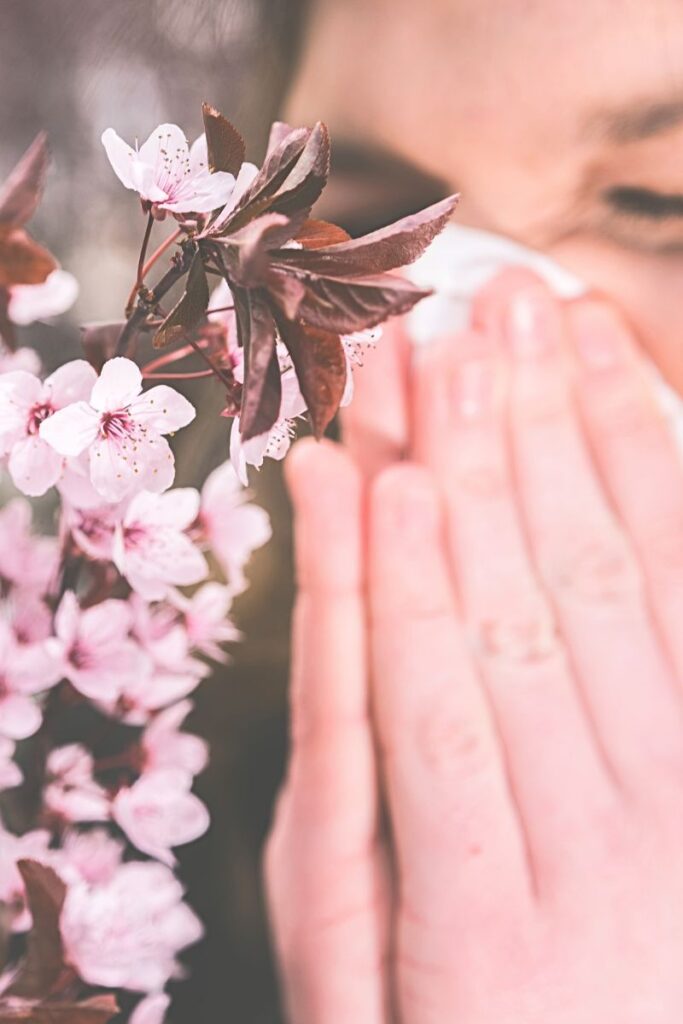
This post may include affiliate links. Please refer to our disclaimer for full disclaimer.
While over-the-counter medications and prescription drugs are commonly used to manage allergies, some people prefer natural remedies due to concerns about potential side effects or the desire for a more holistic approach.
7 Herbal Remedies for Allergies and Sinus
In this article, we will explore various herbal remedies backed by scientific evidence that can provide relief for allergy and sinus-related issues. From neti pots to essential oils, herbs and dietary supplements, we will delve into effective natural solutions that target symptoms and support overall well-being.
Nasal Irrigation with a Neti Pot
One of the most widely recognized natural remedies for sinus congestion and nasal allergies is the use of a neti pot. Nasal irrigation involves rinsing the nasal passages with a saline solution to remove irritants and allergens.
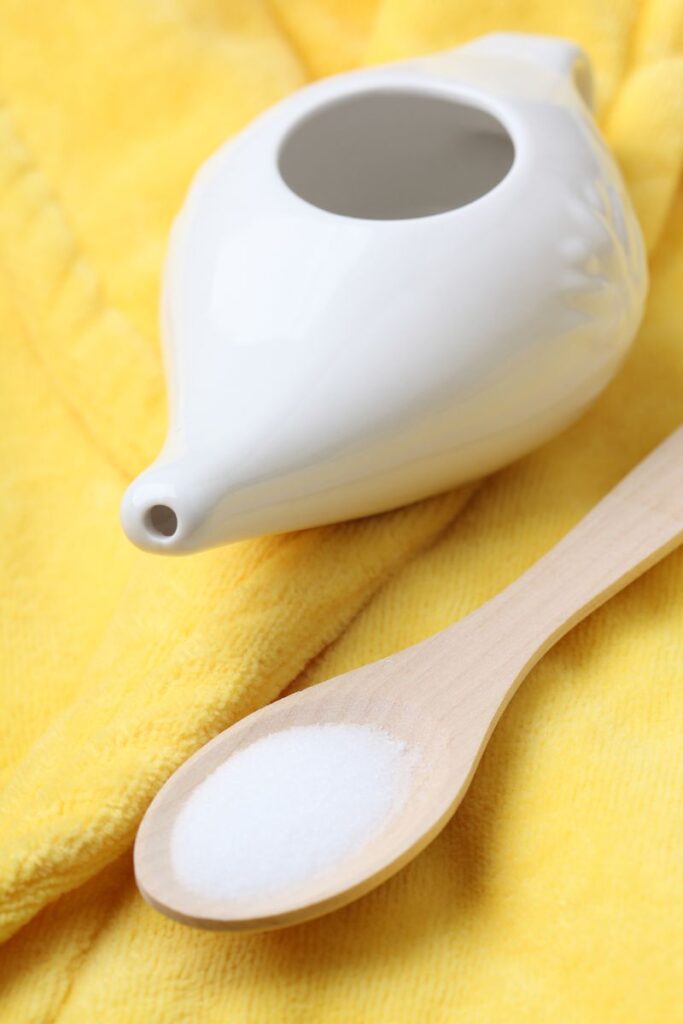
A neti pot is a small vessel designed specifically for this purpose. Studies have shown that regular use of a neti pot can alleviate nasal congestion, reduce the frequency of sinus infections, and provide relief for seasonal allergy symptoms. It is essential to use distilled or sterile water and follow proper instructions to ensure safe and effective nasal irrigation.
Essential Oils for Allergy Relief
Essential oils have gained popularity in recent years for their potential therapeutic benefits. Certain essential oils, such as eucalyptus oil, possess anti-inflammatory and decongestant properties that can help relieve sinus congestion and promote easier breathing.

Inhalation or topical application of diluted essential oils can offer relief from symptoms like nasal congestion, watery eyes, and sore throat. However, it is important to use essential oils properly and consider individual sensitivities or allergies to specific oils.
Vitamin C and its Immune-Boosting Effects
Vitamin C is renowned for its immune-boosting properties and its potential to alleviate allergy symptoms. As a powerful antioxidant, it can help reduce the release of histamine, a compound involved in allergic reactions.

Incorporating foods rich in vitamin C, such as citrus fruits and green leafy vegetables, into your diet can provide natural support for your immune system and potentially reduce the severity of allergic responses.
The Benefits of Stinging Nettle for Allergies
Stinging nettle, scientifically known as Urtica dioica, has long been recognized as a natural remedy for allergies. Research suggests that stinging nettle may possess anti-inflammatory properties that can help alleviate symptoms like nasal congestion, sneezing, and itchy eyes.

Studies have demonstrated the efficacy of stinging nettle extracts in reducing allergic responses, making it a promising herbal remedy for individuals with hay fever or other seasonal allergies.
Butterbur: A Natural Antihistamine
Butterbur (Petasites hybridus) is a herb native to Europe and Asia that has been traditionally used to treat a variety of ailments, including allergies and migraines. Scientific evidence supports its effectiveness as a natural antihistamine, helping to alleviate symptoms such as sneezing, itchy eyes, and nasal congestion.
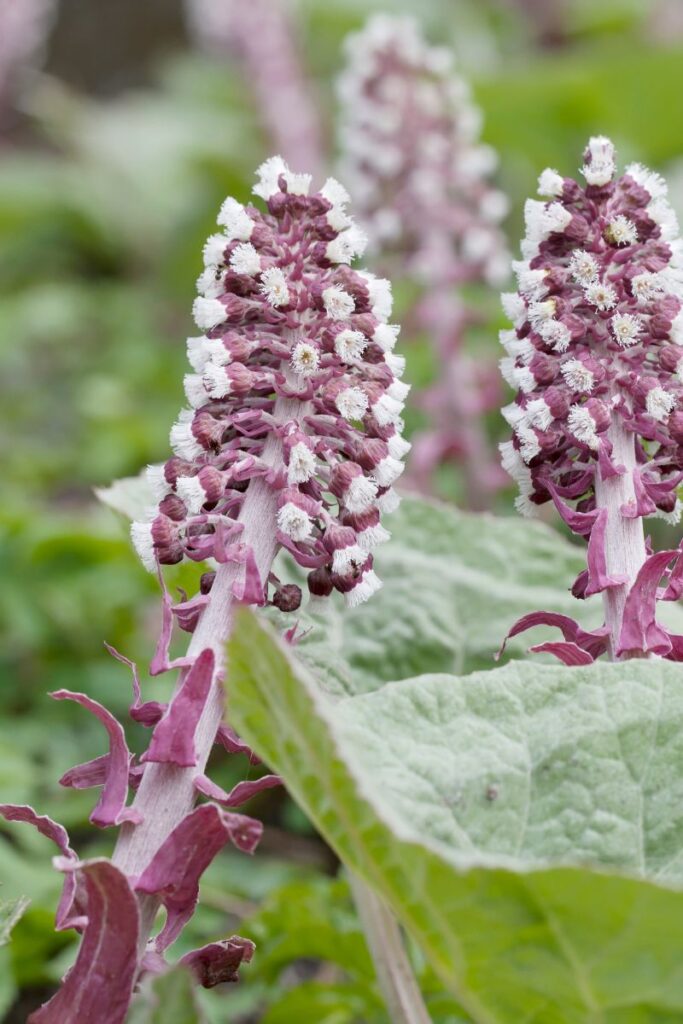
However, it is important to note that butterbur should be used in standardized extracts free of potentially harmful compounds called pyrrolizidine alkaloids.
Apple Cider Vinegar and its Potential Benefits
Apple cider vinegar has been praised for its potential health benefits, including its ability to support sinus health and alleviate allergy symptoms. Its natural acidity may help to break up mucus and relieve sinus congestion.
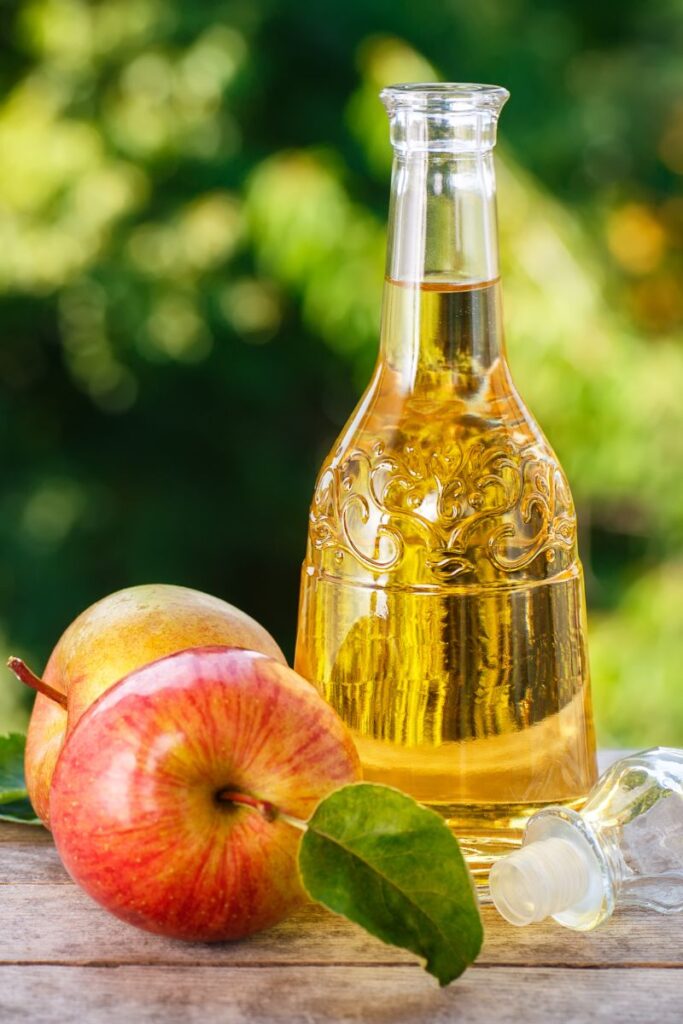
Mixing a tablespoon of raw, unfiltered apple cider vinegar with a glass of water and consuming it regularly may provide relief for some individuals. I like this Immunity Tonic here, incorporating lemon, ACV, garlic, and more immune-boosting ingredients.
Herbal Teas and Natural Supplements
Several herbs and dietary supplements have been studied for their potential to alleviate allergy symptoms. For example, rosmarinic acid, found in rosemary and other herbs, has shown promise in reducing nasal congestion and inflammation. Green tea, with its anti-inflammatory properties, may also provide relief for allergic rhinitis.
This is my favorite green tea matcha! It has a great, fresh taste and vibrant color.
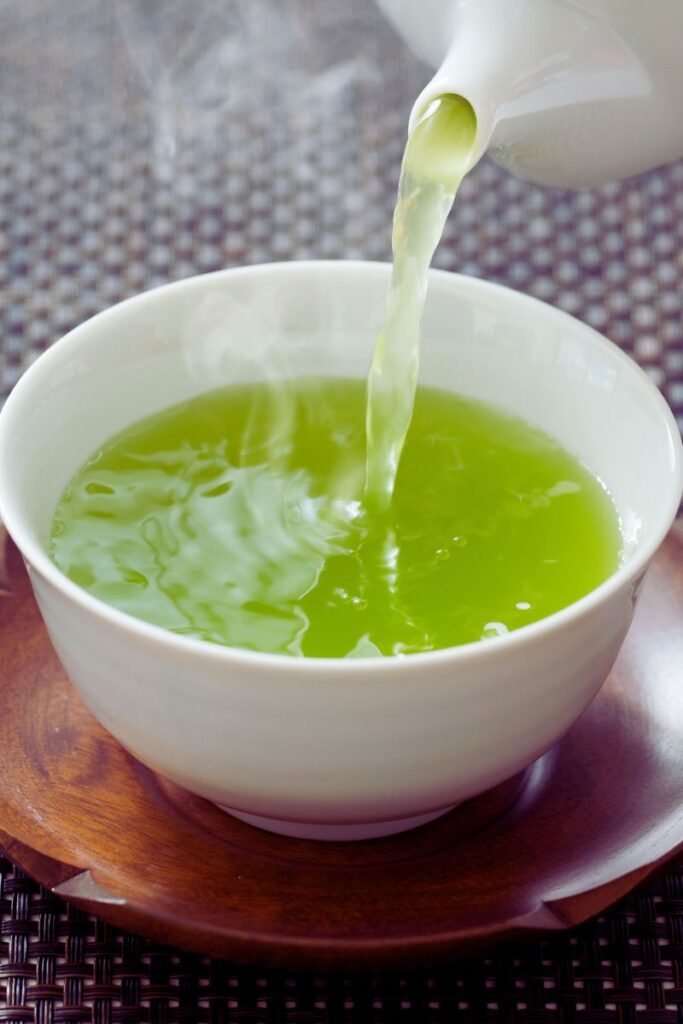
Additionally, some natural supplements, such as quercetin and bromelain, have been studied for their potential to reduce allergy-related symptoms and support a healthy immune response. You can also find these naturally occurring through a healthful, whole foods diet.
What Can Aggravate Seasonal Allergies?
In addition to exploring herbal remedies for seasonal allergies, it is essential to be aware of factors that can exacerbate allergy symptoms. By minimizing exposure to these triggers, individuals can better manage their allergies and reduce discomfort. Here are some common factors that can aggravate seasonal allergies:
- Pollen: Pollen from trees, grasses, and weeds is a major culprit in triggering seasonal allergies. It is advisable to stay indoors during peak pollen times, usually in the early morning and late afternoon, and keep windows closed to limit pollen entry.
- Dust Mites: These microscopic creatures thrive in bedding, carpets, and upholstery. Regularly cleaning and dusting your home, using allergen-proof covers on pillows and mattresses, and maintaining low humidity levels can help reduce exposure to dust mites.
- Mold: Mold spores can trigger allergic reactions, especially in damp and humid environments. Regularly inspecting and addressing any moisture issues in your home, such as leaks or condensation, and using dehumidifiers can help prevent the growth of mold.
- Pet Dander: If you are allergic to pet dander, it is advisable to limit exposure to animals that trigger your allergies. Regularly grooming and bathing pets, keeping them out of the bedroom, and using high-efficiency particulate air (HEPA) filters can help reduce pet dander in your living environment.
- Smoke and Strong Odors: Smoke from cigarettes or burning wood, as well as strong odors from cleaning products, perfumes, and certain chemicals, can irritate the respiratory system and worsen allergy symptoms. Avoiding smoke-filled areas and opting for unscented or natural products can be helpful.
- Air Pollution: Environmental pollutants, such as vehicle exhaust, industrial emissions, and smog, can worsen allergy symptoms. It is advisable to stay informed about air quality conditions and limit outdoor activities on days when pollution levels are high.
Common Symptoms of Seasonal Allergies
Seasonal allergies, also known as allergic rhinitis or hay fever, can manifest in various ways. It is important to recognize these symptoms to differentiate them from other conditions and seek appropriate treatment. Here are some common symptoms of seasonal allergies:
- Runny Nose and Nasal Congestion: Allergies can cause excessive mucus production, leading to a runny or stuffy nose. This can result in difficulty breathing through the nose and a feeling of congestion.
- Sneezing: Frequent and repetitive sneezing is a hallmark symptom of seasonal allergies. It is usually triggered by the release of histamine, an immune system response to allergens.
- Itchy and Watery Eyes: Allergies often cause the eyes to become itchy, red, and watery. This symptom, known as allergic conjunctivitis, can significantly impact visual comfort.
- Sore Throat and Coughing: Post-nasal drip, which occurs when excess mucus drips down the throat, can lead to a sore throat and persistent coughing.
- Fatigue: Allergy symptoms can be exhausting, causing fatigue and a general feeling of low energy.
- Itchy Skin or Rashes: In some cases, allergies can cause itchiness and rashes on the skin, particularly when allergens come into direct contact with the skin.
- Sinus Pressure and Headaches: Sinus congestion and inflammation can lead to facial pressure and headaches, sometimes extending to the temples or the base of the skull.
By understanding these common symptoms, individuals can better identify when they are experiencing seasonal allergies and seek appropriate remedies for relief.

Remember, if you are experiencing severe allergic reactions or if your symptoms persist and significantly impact your daily life, it is crucial to consult with a healthcare professional for a proper diagnosis and guidance on treatment options.
Conclusion
While allergies and sinus problems can be bothersome, numerous herbal remedies offer natural relief and support for overall well-being. From nasal irrigation with a neti pot to the use of essential oils, vitamin C, and herbal supplements, individuals can explore a range of options to find what works best for them.

It is important to note that everyone's body and sensitivity to different remedies may vary, so it is recommended to consult with a healthcare professional before incorporating new treatments. By combining these natural approaches with a healthy lifestyle and a balanced diet, individuals can better manage seasonal allergies and enjoy improved sinus health.
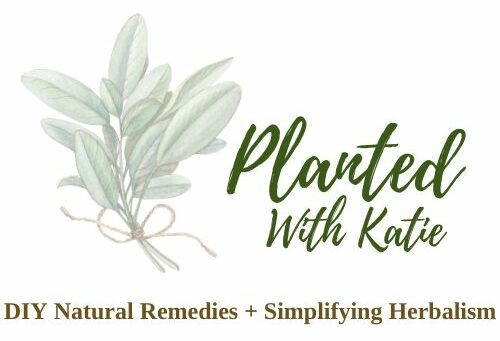
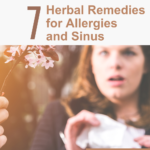


[…] Lemon, Ginger, Apple Cider Vinegar, And Honey Combination (With An Immune-Boosting Tonic Recipe) 7 Herbal Remedies for Allergies and Sinus: Natural Relief 7 Best Herbs For Hormonal Acne (Natural […]
[…] Soothing Chamomile Tea for Fever, Flu, and More 7 Herbal Remedies for Allergies and Sinus: Natural Relief […]
[…] 7 Herbal Remedies for Allergies and Sinus: Natural Relief […]